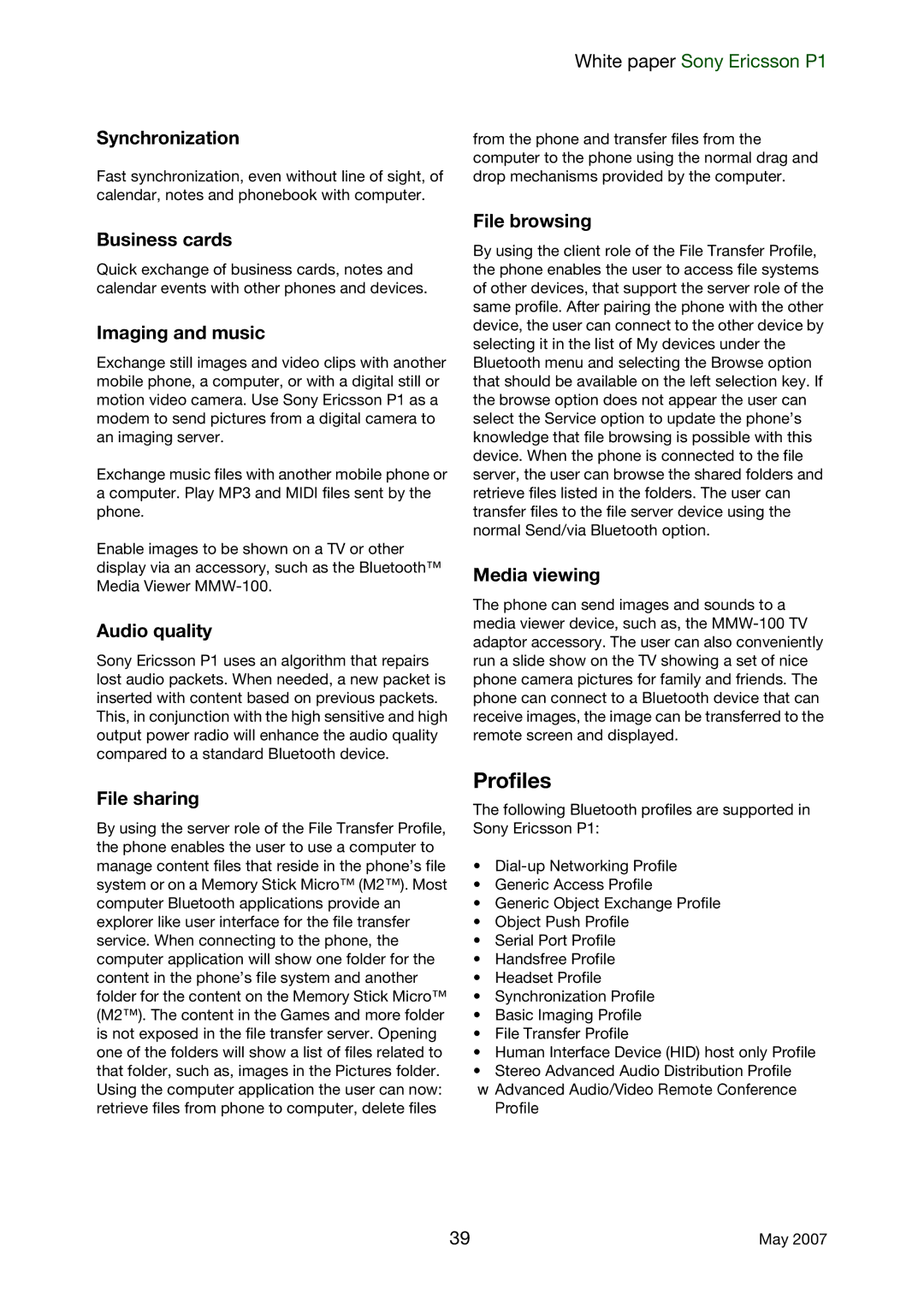Synchronization
Fast synchronization, even without line of sight, of calendar, notes and phonebook with computer.
Business cards
Quick exchange of business cards, notes and calendar events with other phones and devices.
Imaging and music
Exchange still images and video clips with another mobile phone, a computer, or with a digital still or motion video camera. Use Sony Ericsson P1 as a modem to send pictures from a digital camera to an imaging server.
Exchange music files with another mobile phone or a computer. Play MP3 and MIDI files sent by the phone.
Enable images to be shown on a TV or other display via an accessory, such as the Bluetooth™ Media Viewer
Audio quality
Sony Ericsson P1 uses an algorithm that repairs lost audio packets. When needed, a new packet is inserted with content based on previous packets. This, in conjunction with the high sensitive and high output power radio will enhance the audio quality compared to a standard Bluetooth device.
File sharing
By using the server role of the File Transfer Profile, the phone enables the user to use a computer to manage content files that reside in the phone’s file system or on a Memory Stick Micro™ (M2™). Most computer Bluetooth applications provide an explorer like user interface for the file transfer service. When connecting to the phone, the computer application will show one folder for the content in the phone’s file system and another folder for the content on the Memory Stick Micro™ (M2™). The content in the Games and more folder is not exposed in the file transfer server. Opening one of the folders will show a list of files related to that folder, such as, images in the Pictures folder. Using the computer application the user can now: retrieve files from phone to computer, delete files
White paper Sony Ericsson P1
from the phone and transfer files from the computer to the phone using the normal drag and drop mechanisms provided by the computer.
File browsing
By using the client role of the File Transfer Profile, the phone enables the user to access file systems of other devices, that support the server role of the same profile. After pairing the phone with the other device, the user can connect to the other device by selecting it in the list of My devices under the Bluetooth menu and selecting the Browse option that should be available on the left selection key. If the browse option does not appear the user can select the Service option to update the phone’s knowledge that file browsing is possible with this device. When the phone is connected to the file server, the user can browse the shared folders and retrieve files listed in the folders. The user can transfer files to the file server device using the normal Send/via Bluetooth option.
Media viewing
The phone can send images and sounds to a media viewer device, such as, the
Profiles
The following Bluetooth profiles are supported in Sony Ericsson P1:
•
•Generic Access Profile
•Generic Object Exchange Profile
•Object Push Profile
•Serial Port Profile
•Handsfree Profile
•Headset Profile
•Synchronization Profile
•Basic Imaging Profile
•File Transfer Profile
•Human Interface Device (HID) host only Profile
•Stereo Advanced Audio Distribution Profile
√^Çî~åÅÉÇ=^ìÇáçLsáÇÉç=oÉãçíÉ=`çåÑÉêÉåÅÉ=
mêçÑáäÉ
39 | May 2007 |
